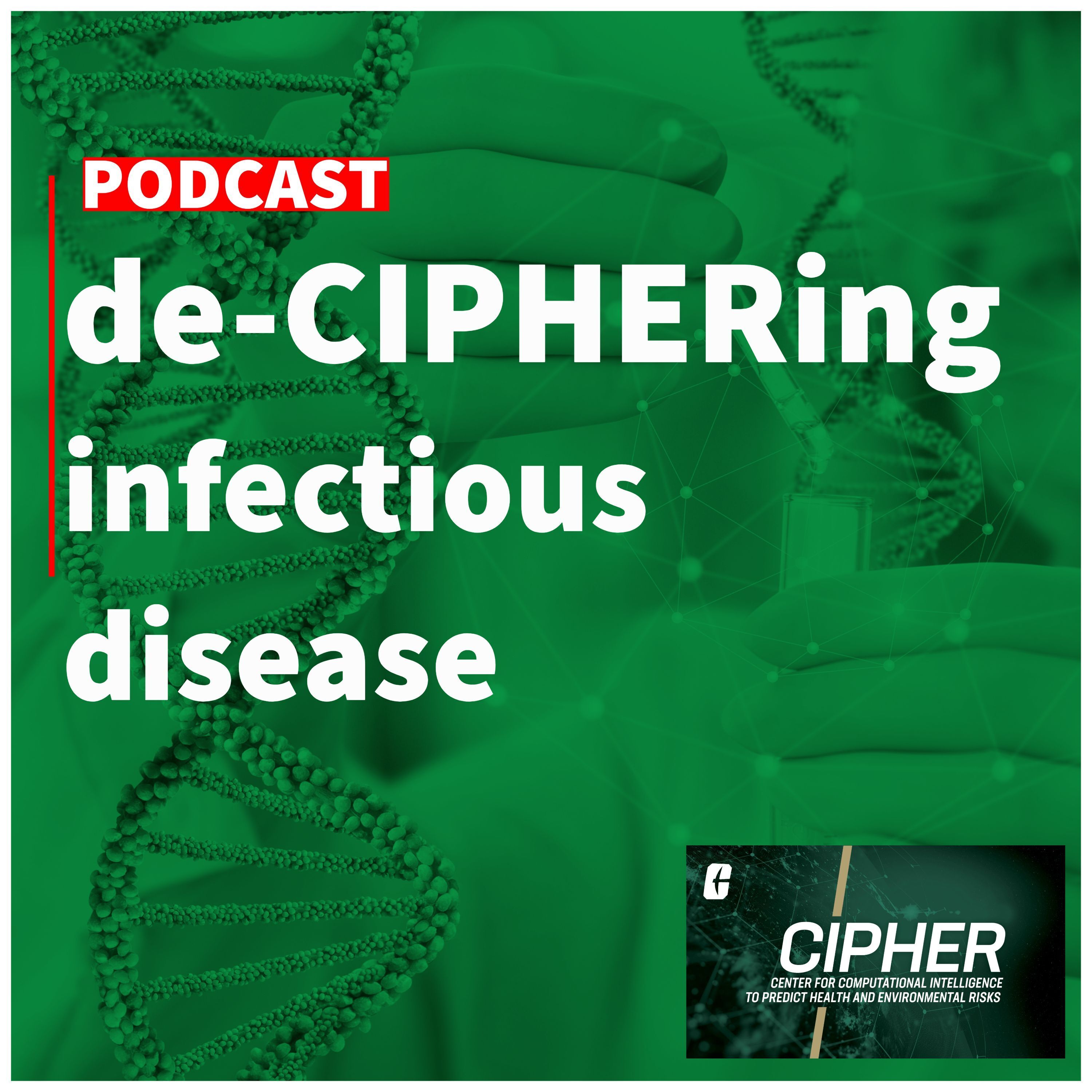
985
Downloads
13
Episodes
”de-CIPHERing Infectious Disease” explores the cutting-edge interdisciplinary research happening at UNC Charlotte’s CIPHER Research Center. Each episode features an in-depth interview with one of CIPHER’s researchers, allowing them to discuss their background, current projects, and the exciting team science approach they take to tackle complex issues at the intersection of health, environment, data science, genomics, infectious disease, and more. Host Ian Binns engages the researchers in accessible conversations that dive into the science behind their work while also highlighting the collaborative spirit and diverse expertise that makes CIPHER’s ”One Health” philosophy so powerful. From evolution and phylogenetics to machine learning, drug discovery, and preventing the next pandemic, ”de-CIPHERing Infectious Disease” offers listeners a window into the innovative solutions being pioneered to address global challenges.
Episodes
Tuesday Jul 16, 2024
Infoveillance with Dr. Shi Chen
Tuesday Jul 16, 2024
Tuesday Jul 16, 2024
Episode 7
Find out more at cipher.charlotte.edu.
Key Takeaways
- Shi Chen's interest in science began with his fascination with animals and bugs as a child.
- He later focused on infectious disease modeling and research in big data analytics, health informatics, and mathematical modeling.
- Infoveillance is a surveillance method that monitors public opinions and sentiments on the internet to detect potential outbreaks and misinformation.
- Effective health communication is crucial in addressing public health concerns, and the impact of misinformation on vaccination rates for diseases like COVID-19 and MMR is a lasting concern. The scenario modeling hub is a collaborative effort to standardize data and assumptions for modeling the COVID-19 pandemic.
- Artificial intelligence has automated data collection and analysis in epidemiology and allows for the integration of high-dimensional datasets.
- Dealing with social and political aspects of disease outbreaks, such as misinformation and discrimination, is a challenge.
- Epidemiologists use data mapping to understand spatial and temporal heterogeneities and inform public health decisions.
This podcast was produced and edited by Zack Jackson
CIPHER is a proud part of UNC Charlotte who holds all rights to the content created by this podcast

No comments yet. Be the first to say something!